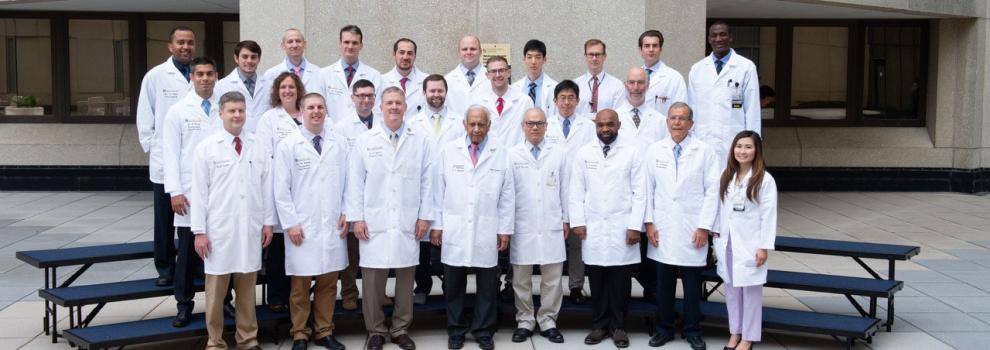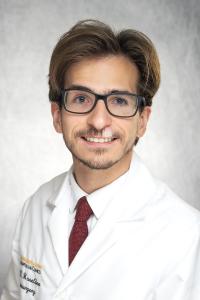Our People
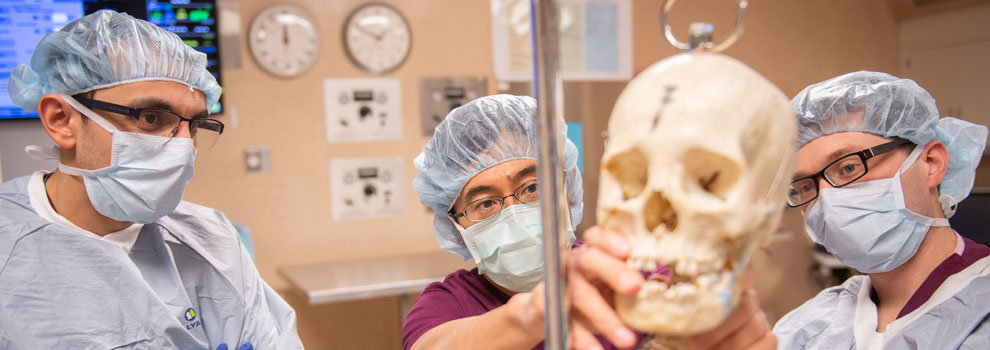
Our people are the heart of our program. From the reception desk to the exam room, from laboratory to diagnostic suite, from administration office to faculty office, you will find our people eager to help you become the best neurosurgeon you can be.
At Iowa, you will be exposed to some of the best clinicians, researchers, and teachers in our profession. We provide high-powered opportunities for you to learn career-long lessons from these dedicated professionals.
Chair and Department Executive Officer
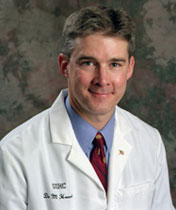 Welcome!
Welcome!
The overarching mission of our Department of Neurosurgery is to provide our residents the finest academic neurosurgery training experience possible. It is our goal to identify and train graduating medical students who have the greatest potential to be the future leaders of academic neurosurgery. We are committed to providing these select individuals the highest quality surgical and scientific training available anywhere.
We have all the resources needed to achieve this objective. Our clinical service is large, growing, and well balanced. We have an outstanding faculty with internationally recognized clinical leaders in the major subspecialties of neurosurgery. The University of Iowa Hospitals and Clinics is superbly equipped with leading edge technologies, including extensive experimental instrumentation. Patients travel to our institution from throughout the region, elsewhere in the U.S., and around the world to receive their neurosurgical care. This provides an ideal patient population for residency training.
The University of Iowa College of Medicine is consistently ranked in the top ten nationally in NIH funding per faculty member, and this institutional research strength is particularly strong in areas critical to the future of neurosurgery. Trainees are integrated into the research planning and training regime immediately upon acceptance into our program. Each resident is integrated into a continuous scientific mentoring process. During the internship and first two years of neurosurgery residency, we explore a wide range of research opportunities. Each resident then chooses an internationally renowned research laboratory in which to spend two years of protected time dedicated to research training. The scope of research opportunities includes leading research laboratories throughout the United States and overseas. This unique experience provides the critical scientific foundation necessary to launch the trainee’s career in academic neurosurgery.
Iowa City is a wonderful place to work and live. It is the ideal environment for residents who wish to pursue their professional ambitions at the highest level, while at the same time enjoying the many benefits of living in a safe, affordable, and culturally rich university town.
Medical students with outstanding academic credentials, who are committed to becoming leaders in the field of academic neurosurgery, are welcome to visit our program, meet the residents and faculty, and apply for the residency program. Please see the institution’s GME home page for more information about Graduate Medical Education at the University of Iowa.
Matthew A. Howard, III, MD
Chair and Department Executive Officer
Current Residents
PGY-7
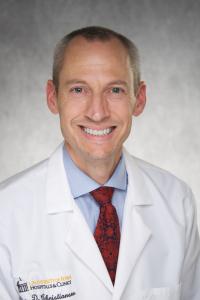
David Christianson, MD
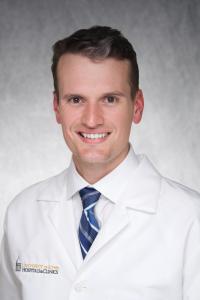
Mark Dougherty, MD
Medical school: University of Chicago Pritzker School of Medicine
Undergraduate: Duke University
Hometown: Austin, Texas
PGY-6
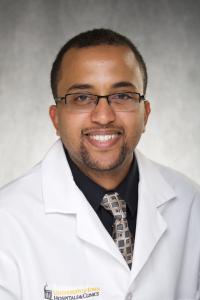
Nahom Teferi, MD
Medical school: Addis Ababa University College of Health Sciences
Post-doctoral scholar/fellowship in neurosurgery: University of Iowa Hospitals & Clinics
Hometown: Addis Ababa, Ethiopia
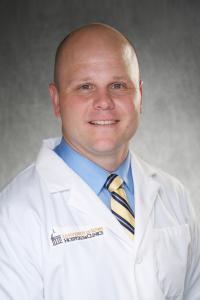
Timothy Woodiwiss, MD
Medical school: University of Washington School of Medicine
Undergraduate: Washington State Uni
Hometown: Moses Lake, Wash
PGY-5
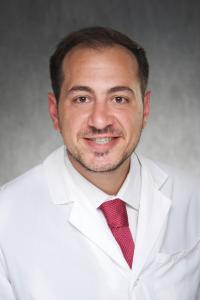
Michael Kritikos, MD
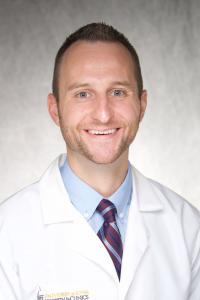
Tyson Matern, MD
Medical School: University of Neveda, Reno School of Medicine
Undergraduate: University of Utah, Salt Lake City, Utah
Hometown: Bountiful, Utah
"During my interview day at the University of Iowa, it was clear that the neurosurgery program offered extremely well-rounded training with strong clinical, operative, and research experience. It was also clear that the residents and faculty at Iowa are a cohesive, friendly, and hard-working group that would provide excellent mentorship and collegiality. Overall, the program's vast resources and commitment to training future leaders in academic neurosurgery made Iowa the preferred choice for my residency training."
PGY-4
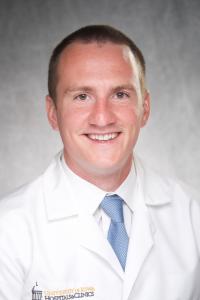
Anthony Marincovich, MD
Medical School: University of Iowa Roy J. and Lucille A. Carver College of Medicine
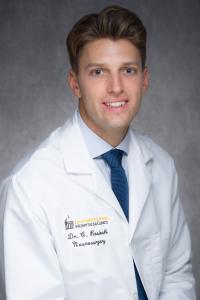
Clayton Rosinski, MD
Medical School: University of Illinois College of Medicine
PGY-3
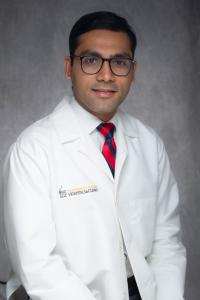
Asad Lak, MBBS
Medical School: King Edward Medical University
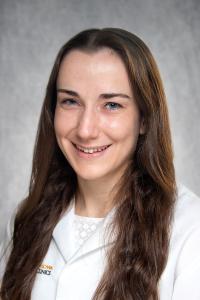
Katherine Jensen, MD
PGY-2
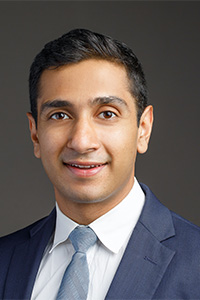
Mani Sandhu, MBBS
William Haselden
PGY-1
Saad Javeed
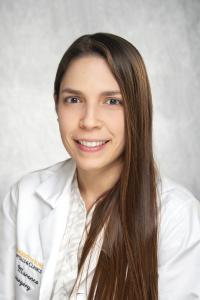
Lina Marenco Hillembrand
Brian Park, MD
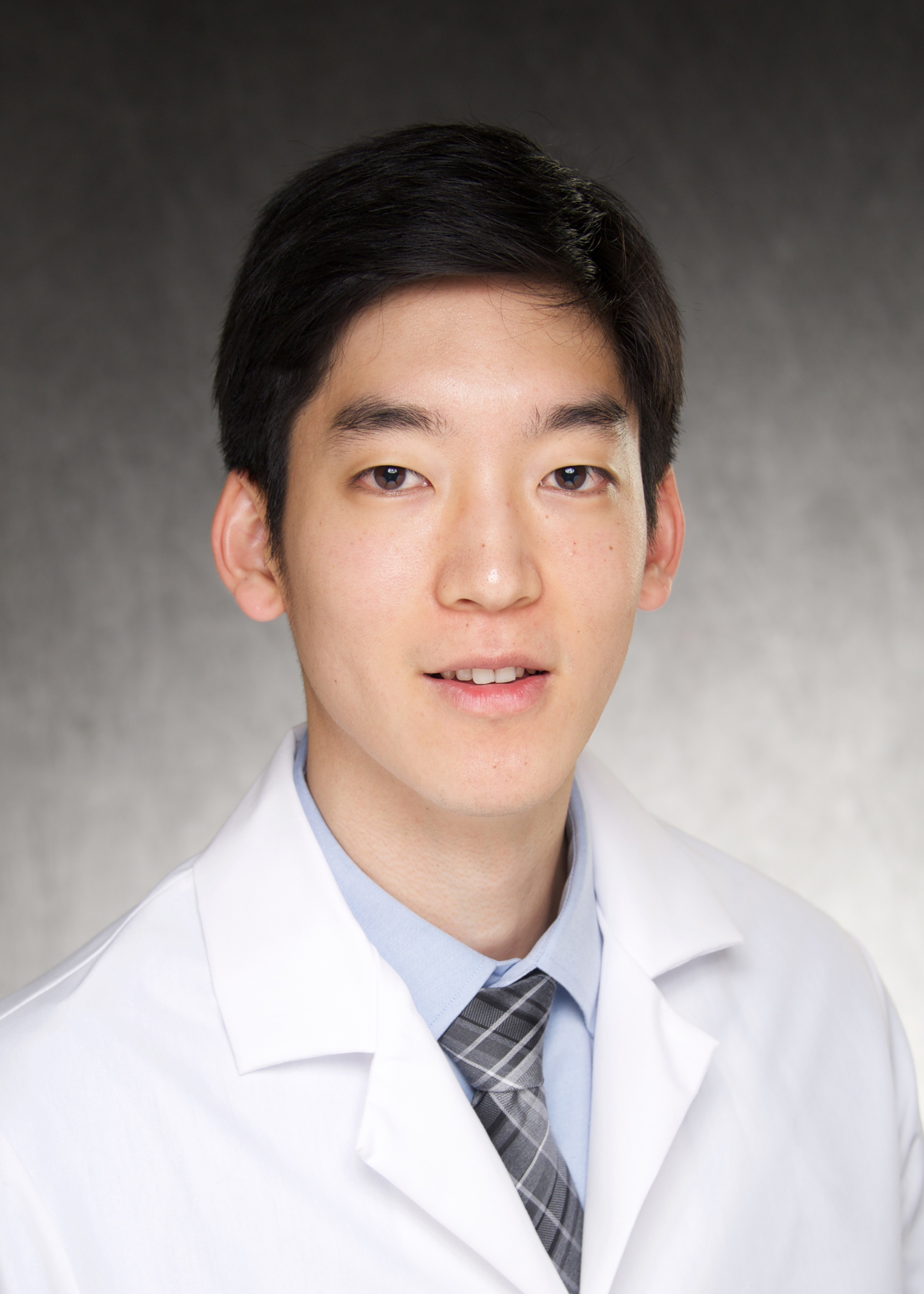 Medical school: University of Iowa Roy J. and Lucille A. Carver College of Medicine
Medical school: University of Iowa Roy J. and Lucille A. Carver College of Medicine
Undergraduate: University of California, San Diego
Hometown: Anaheim, CA
Publications
Deep brain stimulation hardware-related infections: 10-year experience at a single institution.
Abode-Iyamah KO, Chiang HY, Woodroffe RW, Park B, Jareczek FJ, Nagahama Y, Winslow N, Herwaldt LA, Greenlee JDW.
Abode-Iyamah KO, Chiang HY, Winslow N, Park B, Zanaty M, Dlouhy BJ, Flouty OE, Rasmussen ZD, Herwaldt LA, Greenlee JD.
Thoracic Meningocele and Cervical Syringomyelia Treated with Ventriculoperitoneal Shunt.
Close LN, Park B, Woodroffe RW, Hitchon PW.
Fibro-osseous lesion of the cranium in an adolescent patient.
Park B, Abode-Iyamah K, Lee SL, Kirby P, El-Khoury G, Wilson S.
Intraventricular foramen of Monro cavernous malformation.
Winslow N, Abode-Iyamah K, Flouty O, Park B, Kirby P, Howard M 3rd.
Rettenmaier LA, Park BJ, Holland MT, Hamade YJ, Garg S, Rastogi R, Reddy CG.
IgG4 related disease of the craniovertebral junction
Park B, Starks R, Kirby P, Menezes A, Dlouhy B
Mark Dougherty, MD
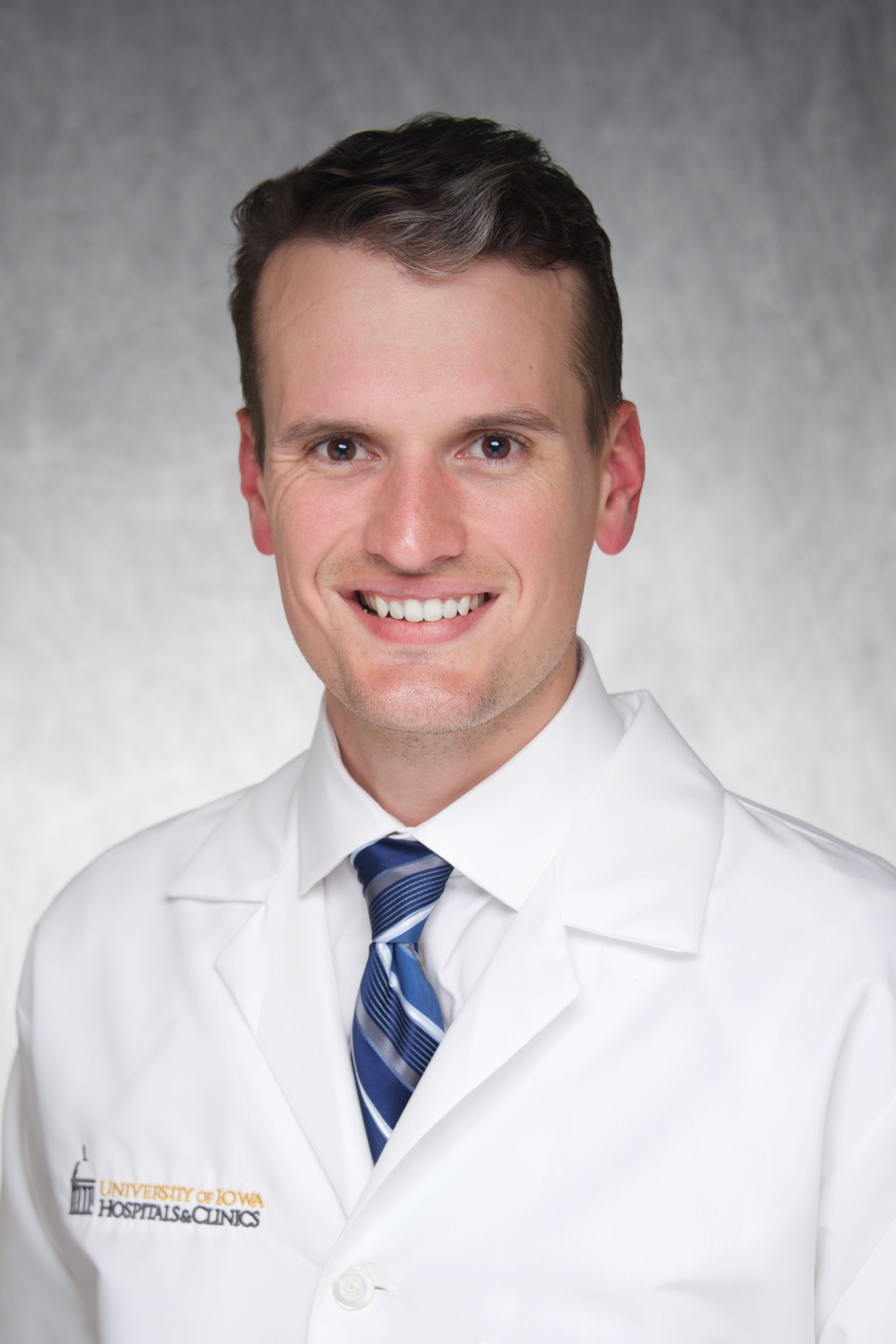 Medical school: University of Chicago Pritzker School of Medicine
Medical school: University of Chicago Pritzker School of Medicine
Undergraduate: Duke University
Hometown: Austin, TX
“‘At Iowa, you WILL learn to operate, whether you like it or not’ – this was said to me on my interview day, and was a big selling point. Strong research mentorship. Challenging but non-malignant environment, with good resident autonomy, in a place that’s easy to live.”
Clinical and research interests
- Skull base surgery
- Benign/low grade tumors
- Novel surgical techniques
- Functional neurosurgery
Selected publications
https://www.ncbi.nlm.nih.gov/pubmed/31350851
https://www.ncbi.nlm.nih.gov/pubmed/28973347
Article: Predictors of Reduced Opioid Use with Spinal Cord Stimulation in Patients with Chronic Opioid Use
Journal: Neuromodulation: Technology at the Neural Interface
Nahom Teferi, MD
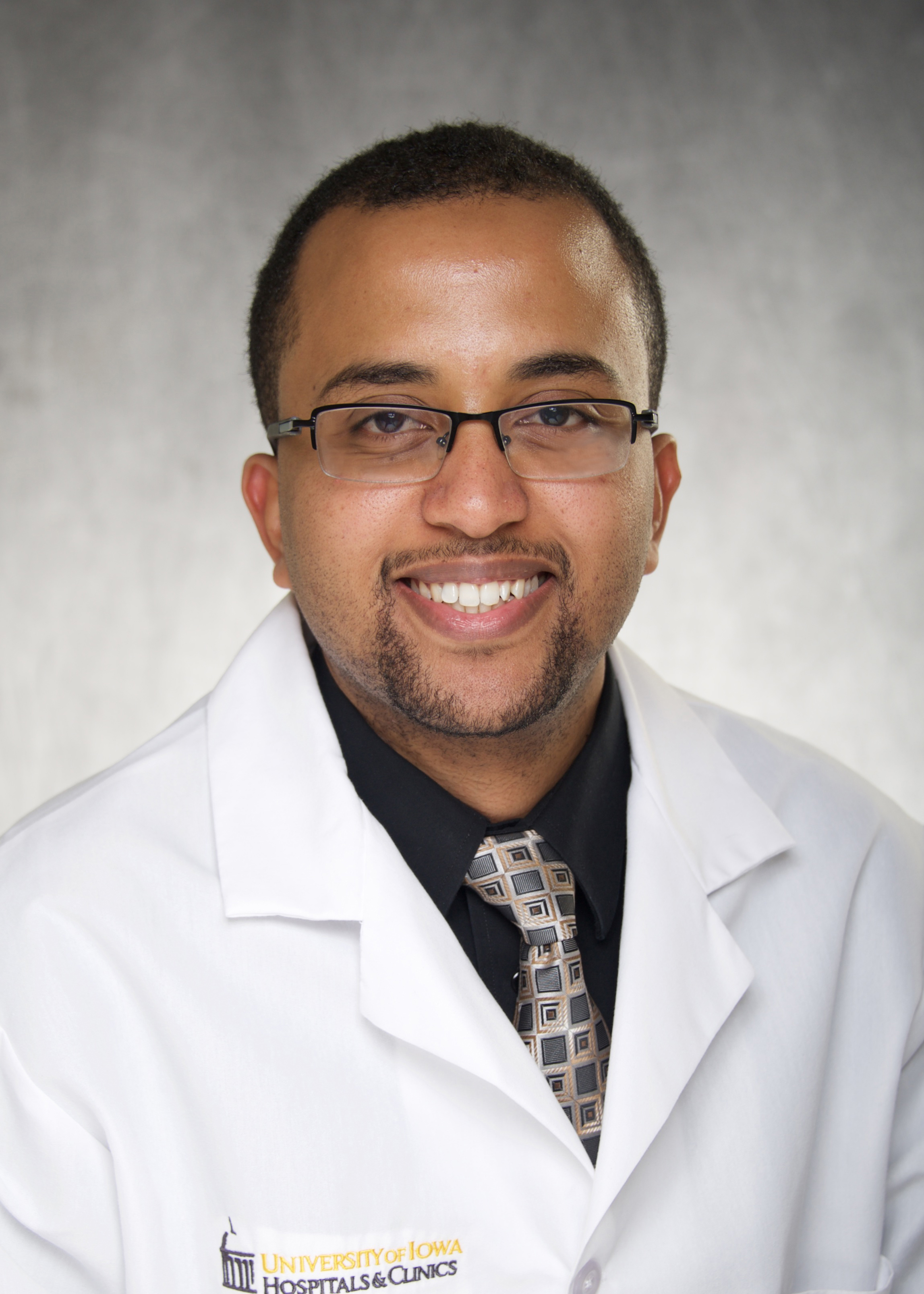 Medical school: Addis Ababa University College of Health Sciences
Medical school: Addis Ababa University College of Health Sciences
Post-Doctoral scholar/fellowship in neurosurgery: University of Iowa Hospitals and Clinics
Hometown: Addis Ababa, Ethiopia
“Having had the chance to pursue a post-doctoral fellowship in the Department of Neurosurgery at the University of Iowa, I was able to witness firsthand the cutting-edge scientific research and world class patient care that is rendered to our patients on a day to day basis. The diverse array of clinical presentations as well as volume of operative cases was also unparalleled. In addition, the utmost emphasis in training future academic neurosurgeons, who are leaders in their respective subspecialties along with the camaraderie and friendship among the residents, made choosing Iowa neurosurgery training program an easy choice.”
Clinical and research interests
I have keen interest in pursuing novel treatment approaches and research in the field of neuro-oncology, particularly in immunotherapy and the role of nanotechnology in the design and delivery of cell-specific anticancer molecule and their effect in GBM tumor kinetics.
Publications
Zanaty, M., Samaniego, E.A., Teferi, N., Kung, D.K., Nakagawa, D., Hudson, J., Ortega-Gutierrez, S., Allan, L., Jabbour, P. and Hasan, D.M., 2019. Hybrid surgery for internal carotid artery revascularization. World neurosurgery, 121, pp.137-144.
Holland, M.T., Teferi, N., Noeller, J., Swenson, A., Smith, M., Buatti, J. and Hitchon, P.W., 2017. Stereotactic radio surgery and radio frequency rhizotomy for trigeminal neuralgia in multiple sclerosis: A single institution experience. Clinical neurology and neurosurgery, 162, pp.80-84.
Teferi, N.T., Hadera, F.A. and Gudeta, M., 2017. Knowledge, Attitude, and Practice of Health Extension Workers in Prescribing Antimalarials in Assosa Zone of Benishangul Gumuz Regional State (BGRS), Northwestern Ethiopia, Ethiopian Medical Journal, 55(3).
M.S., Zanaty, M., Teferi, N., Kung, D., Limaye, K., Al Kasab, S., Nakagawa, D., Jabbour, P., Samaniego, E.A. and Hasan, D.M., 2019. Abstract TP561: The Effects of Recanalization of Chronically Occluded Internal Carotid Artery on Patients' Neurocognition. Stroke, 50(Suppl_1), pp.ATP561-ATP561.
Nakagawa, D., Zanaty, M., Hudson, J., Teferi, N., Ishii, D., Allan, L., Jabbour, P., Ortega‐Gutierrez, S., Samaniego, E.A. and Hasan, D.M., 2018. Plasma Soluble Human Elastin Fragments as an Intra‐Aneurysmal Localized Biomarker for Ruptured Intracranial Aneurysm. Journal of the American Heart Association, 7(17), p.e010051.
Zanaty, M., Roa, J.A., Piscopo, A.J., Kritikos, M.E., Teferi, N. and Howard III, M.A., 2019. Methods and Devices for Posterior Ventriculoperitoneal Shunt Placement Surgery: 25 Years of Iterative Refinement. World neurosurgery.
Chieng, L., Madhavan, K., Teferi, N., Wang, M. and Vanni, S., 2018. 329 Prolonged Use of Narcotic Following Lumbar Spine Surgery: Predictive Factors and Outcome Analysis. Neurosurgery, 65(CN_suppl_1).
Submissions
Hitchon P., Teferi, N., Abukhiran, I., Noeller, J., Helland, L., Bathla, G., Nourski, K., 2019. Vertebral Hemangiomas: diagnosis and management. A single center experience. World Neurosurgery- Submitted
Timothy Woodiwiss, MD
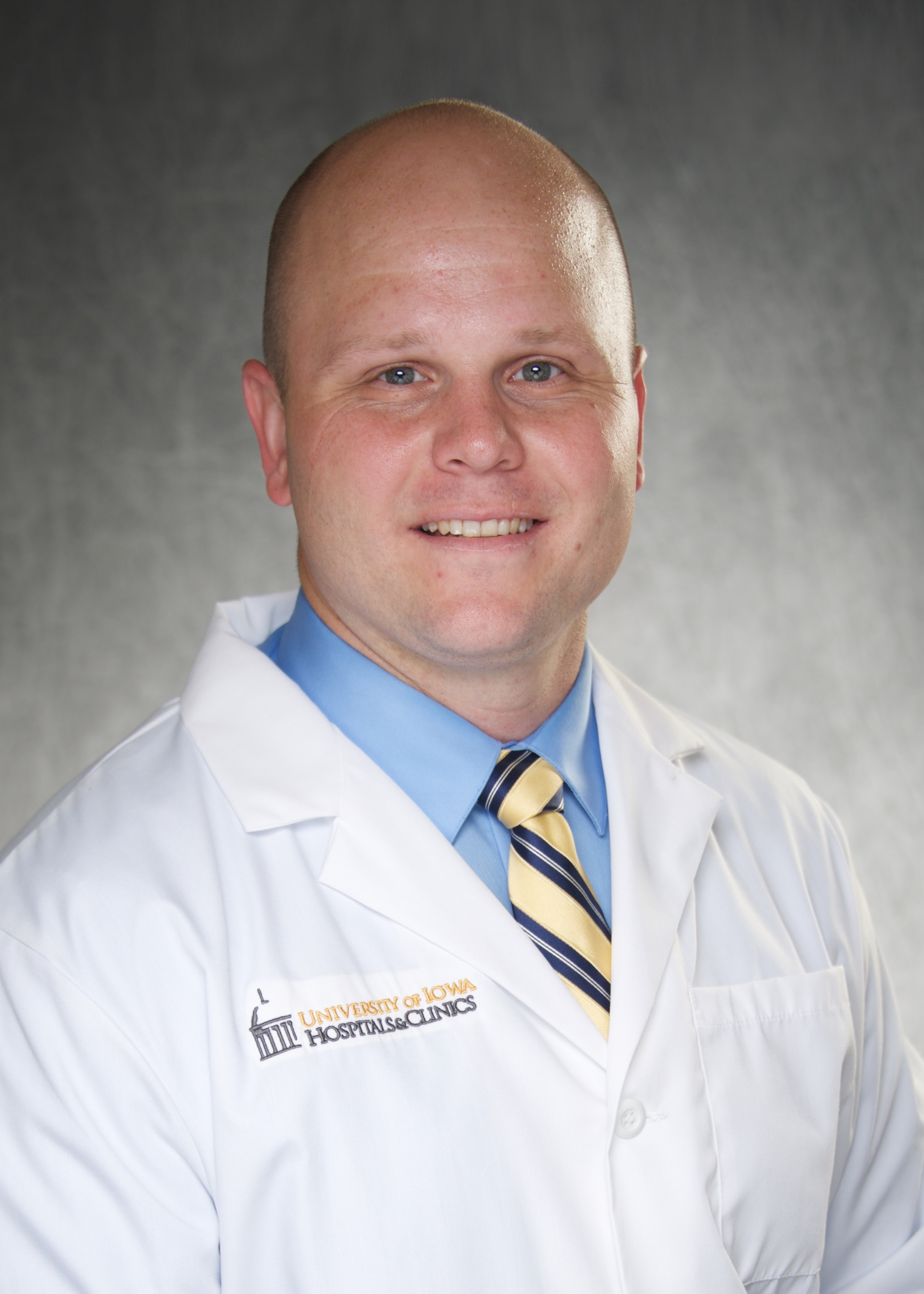 Medical school: University of Washington School of Medicine
Medical school: University of Washington School of Medicine
Undergraduate: Washington State University
Hometown: Moses Lake, WA
“During my sub-internships around the country, I was impressed with the uniform consensus around the excellent track record of producing well trained academic neurosurgeons at the University of Iowa. During my interview at the University of Iowa, I was struck by the enthusiasm for and commitment to structured resident mentorship by Dr. Howard and Dr. Greenlee, as well as the two dedicated years for research which can take place anywhere in the world. After ranking Iowa highly and being fortunate enough to match here, I can say with confidence that if being an academic neurosurgeon is your career goal, then the University of Iowa should be a program on your radar.”
Clinical and research interests
- Primary brain tumors
Selected publications
Ruzevick J, Woodiwiss T, Emerson S, Patel A, Sekhar L, Ferriera M. Adjuvant radiation does not decrease the risk of short-term tumor recurrence or improve overall survival in patients with atypical meningioma. Journal of Neuro-Oncology (2019). Submitted
Chibawanye E, Kreuser S, Zhang H, Arora S, Moyes K, Szulzewsky F, Wirsching H, Patel A, Kong P, Woodiwiss T, Houghton A, Pierce R, Crane C, Holland E. Anti-PD-L1 antibody direct activation of macrophages contributes to an abscopal response in murine brain tumors. Cancer Cell (2019). Submitted
Woodiwiss TR, Whipple M, Wu PC. Student satisfaction and the value of participation in a structured medical student research program. J Investig Med (2017) 65 (1): 111
Puthiyaveetil S, Woodiwiss T, Knoerdel R, Zia A, Wood M, Hoehner R, Kirchhoff H. Significance of The Photosystem II Core Phosphatase PBCP For Plant Viability and Protein Repair in Thylakoid Membranes. Plant Cell Physiol (2014) 55 (7): 1245-1254
Alumni Residents
Our residents have many choices available after completing their residency training.
Below is a summary of recent resident destinations.
Alumni destinations
- 2018, Olatilewa Awe, Mosaic Life Care
- 2018, Yasunori Nagahama, UCLA Health
- 2017, Kingsley Abode-Iyamah, Mayo Clinic
- 2016, Taylor Abel, University of Pittsburgh Medical Center
- 2016, Andrew Grossbach, The Ohio State University
- 2015, Brian Dalm, The Ohio State University
- 2015, Stephanus Viljoen, The Ohio State University
- 2014, Raheel Ahmed, University of Wisconsin School of Medicine and Public Health
- 2014, Daniel Hansen
- 2013, Kelly Mahaney, Stanford University
- 2013, Brian Dlouhy, University of Iowa
- 2012, David Kung, University of Pennsylvania
- 2012, Adam Jackson, Sanford Health
- 2011, Nadar Dahdaleh, Northwestern Medicine
- 2011, Timothy Vogel, Hackensack University Medical Center
- 2011, Timothy Lindley, Heartland Orthopedic Specialists
- 2010, Chandan Reddy, University of Florida Health
- 2010, Fangxiang Chen, Mercy Health System
- 2009, Gregory Albert, Arkansas Children's Hospital
- 2009, Saul Wilson, University of Iowa
- 2008, Albert Fenoy, McGovern Medical School at UT Health
- 2008, Bryan Bertoglio, Amita Health Medical Group
- 2007, Meryl Severson, Durham VA Health Care
- 2006, David Hasan, University of Iowa
- 2006, Steven Kraljic, CHI St. Alexius Health
- 2005, Kurt M. Eichholz, St. Louis Minimally Invasive Spine Center
- 2005, Dan Guillaume, University of Minnesota
- 2004, Christopher Barry, Neurological Services
- 2004, Jeremy Greenlee, University of Iowa
- 2003, Laurie Ackerman, Indiana University
